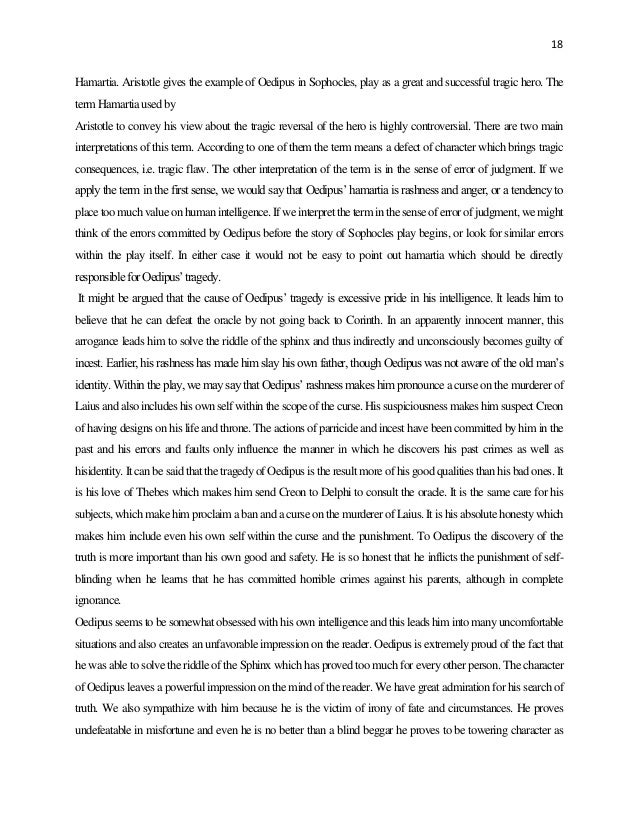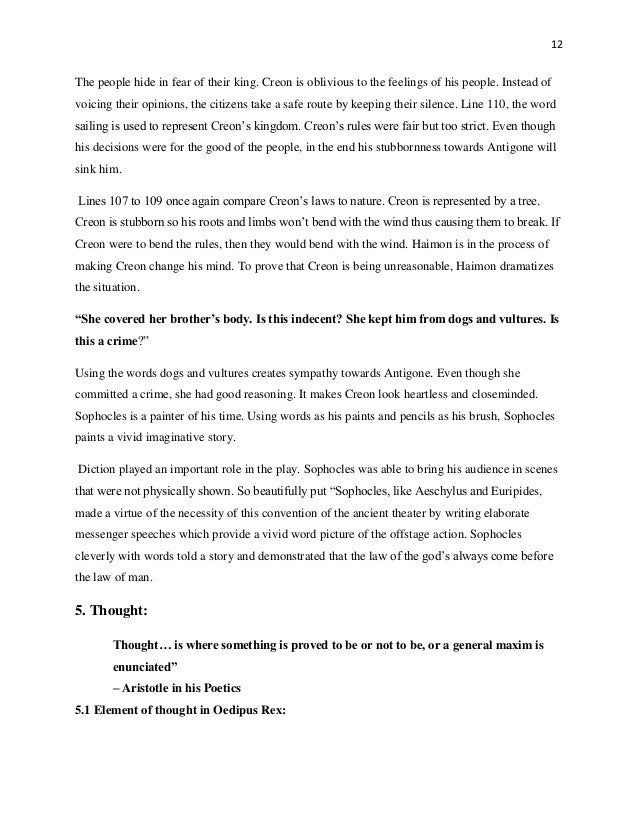
Therefore, Sophocles first wrote the Oedipus Rex trilogy in fifth-century Athens with the full understanding that the audience would relate dilemmas presented within his work to potentially problematic aspects of their contemporary society. Moreover, these tragedies were written as entries into a competition, thus relying on an aspect of relatability within the characters and themes of the plays. The prescribed order of the world was called cosmos, and it delineated completely distinct aspects of society. Greek tragedy as a genre derives immense meaning from the distinction between gods and men. The actions of angry and temperamental gods, whom the Athenians had no control over, could explain plagues, floods, famine, and earthquakes. This imbalance served to explain tragedies that are exempt from human influence. The gods could act indiscriminately, and the men had no power over them.

This divination is the practice that Tiresias participates in throughout the Oedipus corpus. According to Adkins, portents were a common aspect of ancient Greek society to divine the will of the gods. In direct contrast to this political system, the religion of Athens was highly deterministic, relying on prophetic mechanisms such as oracles and divination to determine external circumstances. Sophocles's friend Pericles, the famous orator, said of Athens, "each single one of our citizens, in all the manifold aspects of his life, is able to show himself the rightful lord and owner of his own person." In the context of Athenian political life, free-will was necessary to maintain the entire concept of their democracy, to believe that each choice the demos, or the populace of Athens, makes matters. Unique at the time, Athenian democracy granted individuals power in an otherwise deterministic world.


Athenian society, which these plays are referencing and interpreting, heavily centered around the conception of democracy.

Are freedom and fate mutually exclusive concepts? Can we accept our own insignificance without devolving into personal existentialism? What is the value in making a choice if we are condemned to a predetermined destiny? These are the questions Sophocles attempts to answer through his works Oedipus Rex and Antigone.


 0 kommentar(er)
0 kommentar(er)
